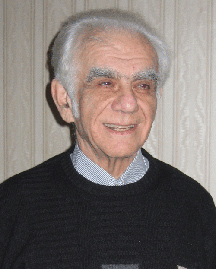Vladimir I. Levenshtein
- Associated organizations
- Russian Academy of Sciences
- Fields of study
- Coding
Biography
A pioneer in the theory of error correcting codes, Dr. Vladimir I. Levenshtein is known as the father of coding theory in Russia. A research professor at the Keldysh Institute for Applied Mathematics at the Russian Academy of Sciences in Moscow, Levenshtein’s contributions are present in consumers’ everyday lives. His “Levenshtein distance,” or “edit distance,” is the root of today’s spell-checking computer applications; and he has also contributed to the basic technology found in third generation wired cellular telephony.
Dr. Levenshtein has provided the best-known universal bounds to optimal sizes of codes and designs in metric spaces, including the Hamming space and the Euclidean sphere. In particular, they led to the discovery of the long-sought kissing numbers for n=8 and n=24. Dr. Levenshtein authored optimal constructions for several error correcting problems, including: codes that correct a quarter or more of the errors present; codes with a given comma free index; perfect codes able to correct single deletions and single peak shifts; and binary codes with a given probability of undetected error. His work on the universal efficient coding of integers has led to algorithms that offer promising applications in data compression.
The Levenshtein Distance and his designs and bounds are widely used in many engineering, statistics and bioinformatics applications. His recent study into the efficient decoding of information based on the observation of several corrupted copies is expected to have applications in areas as diverse as computer science, molecular biology, DNA analysis, speech recognition and even plagiarism detection.
An IEEE Fellow, he is a member of the Moscow Mathematical Society.
